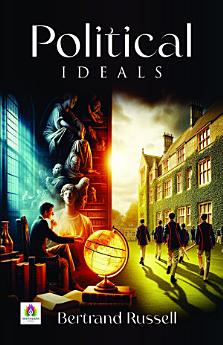Political Ideals
Über dieses E-Book
At the core of Political Ideals is Russell's belief in the importance of rationality and empathy in political discourse. He critiques existing political systems, highlighting their failures and the ways in which they often subordinate individual creativity and freedom to authoritarian structures. Russell argues for a political philosophy that recognizes the value of personal liberty and the potential for individuals to contribute meaningfully to society when they are free from oppressive constraints.
In this book, Russell addresses crucial topics such as democracy, socialism, war, and the role of education in shaping political consciousness. His critique of militarism and war reflects his broader pacifist beliefs, advocating for peaceful resolutions to conflicts and the pursuit of understanding through dialogue rather than aggression. Russell's call for a more educated and critically minded citizenry serves as a powerful reminder of the responsibilities individuals hold in sustaining a healthy democracy.
Russell's writing is both eloquent and accessible, making complex philosophical concepts approachable for readers from varied backgrounds. He emphasizes the need for ethical considerations in political decision-making, urging societies to cultivate values rooted in kindness and cooperation. Through his arguments, he inspires readers to envision a world where political ideals are rooted in compassion and mutual respect.
Moreover, Political Ideals invites readers to engage with the ideas of liberty, equality, and justice, examining how these principles can be effectively implemented in the political sphere. Russell's keen insights into human psychology and social dynamics reveal the challenges inherent in achieving these ideals, yet he remains hopeful about humanity's potential to create a better world. His work encourages activism grounded in rational thought and ethical imperatives, illuminating the path toward a more just and equitable society.
In conclusion, Bertrand Russell's Political Ideals is a remarkable treatise that examines the moral and philosophical dimensions of politics. Its enduring relevance lies in its challenge to readers to reflect on their roles as citizens and engage deeply with the ideals that underpin just governance. For anyone interested in philosophy, politics, or the interplay between the two, Russell's work is both enlightening and inspiring.








